Viral TikTok Star Fights the Diet Culture, Promotes Body Positivity — Brittani Lancaster’s Mission of Good
From Eating Disorders to Self Love
BY Nicole Betts // 09.14.20Body-positive advocate Brittani Lancaster celebrates 500k followers on TikTok — a number that has now surpassed 700K.
Shedding a couple of pounds for that spring break body, eliminating entire food groups, labeling foods as good or bad… Diet culture feeds us these ideas to convince society that losing weight leads to a happier and more fulfilling life.
Each year, a whopping 45 million people start fad diets, which can lead to restriction and eating disorders. Today, diet culture feeds many people’s minds with unrealistic versions of the “perfect body” on social media.
To help combat these ancient beauty standards, a community of young women on TikTok promotes body positivity and self-love. TikTok stars Rianna Kish, Mik Zazon, Victoria Garrick, Clara Guillem, Jana Jaye, and — last but not least — Brittani Lancaster share their eating-disorder recovery stories online.
Meet Brittani Lancaster
22-year-old Brittani Lancaster proudly stands out as a leader in the body positivity community on TikTok with her sunny disposition and outgoing personality.
The self-love queen has been in recovery from two eating disorders for four years now. A recent graduate from the University of Oregon, Lancaster details her recovery story online to help others who may be struggling with similar issues.

The body-positivity advocate first downloaded TikTok with the intention of making silly dances with her friends and following popular trends.
Before attending her sorority formal in her senior year in college, Lancaster made a TikTok video, dancing to a popular dance trend at the time, the Dougie. She added text to the groovy video: “Today marks 3.5 years of eating disorder recovery.” Overnight, her TikTok went viral.
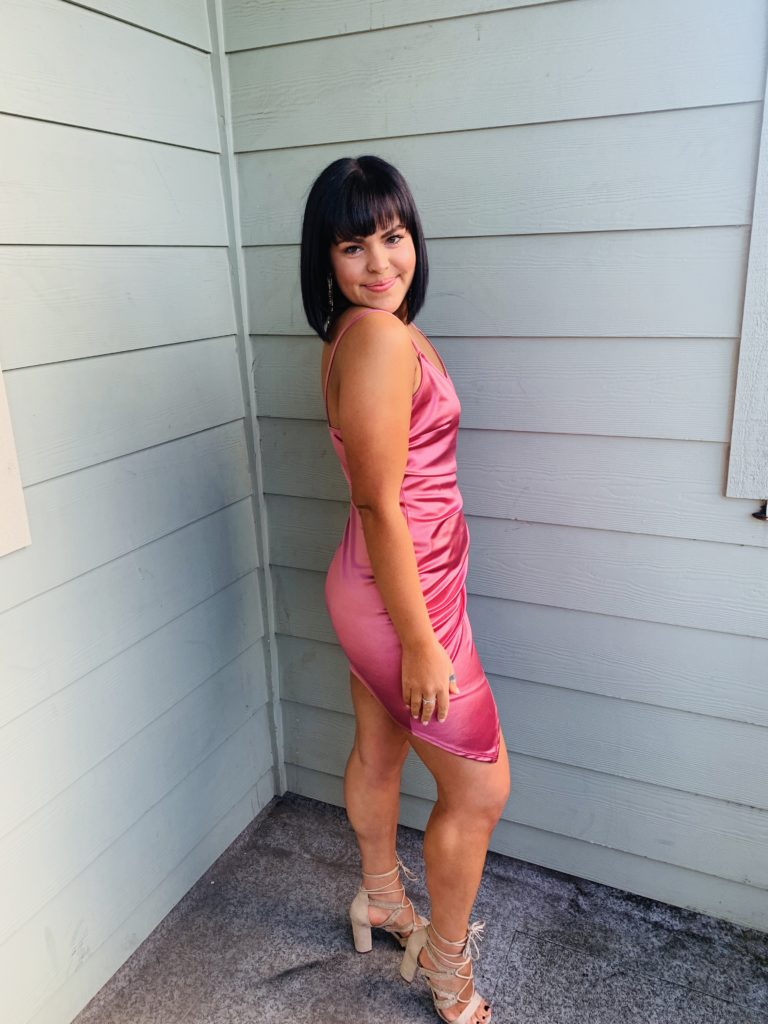
As a TikTok regular, Lancaster didn’t see a lot of videos about body positivity, so she decided to solely make TikToks on that subject and share her experiences. She now has a whopping 732,000-plus followers.
Developing an Eating Disorder
Lancaster grew up in South Florida and spent a lot of time home alone after school due to her parents’ busy work schedule. In fifth grade, young Brittani would arrive home every afternoon and indulge — one of her favorite after-school activities.
Due to overeating and a lack of physical activity, she soon became very overweight. The eager fifth-grader knew she was one of the “bigger” girls in the class but was never self-conscious about how her body was naturally made.
“Even though I was bigger than the other girls growing up, it never really hit me that it was something I needed to be self-conscious about until I was in my sophomore year of high school,” Lancaster says. “I was exposed to society’s ‘ideal’ bodies on social media and magazine covers.”
Lancaster’s eating disorder developed when she joined the swim, water polo, and soccer teams. The three-sport varsity athlete was constantly wearing a swimsuit, which made her very self conscious about cellulite on her body.
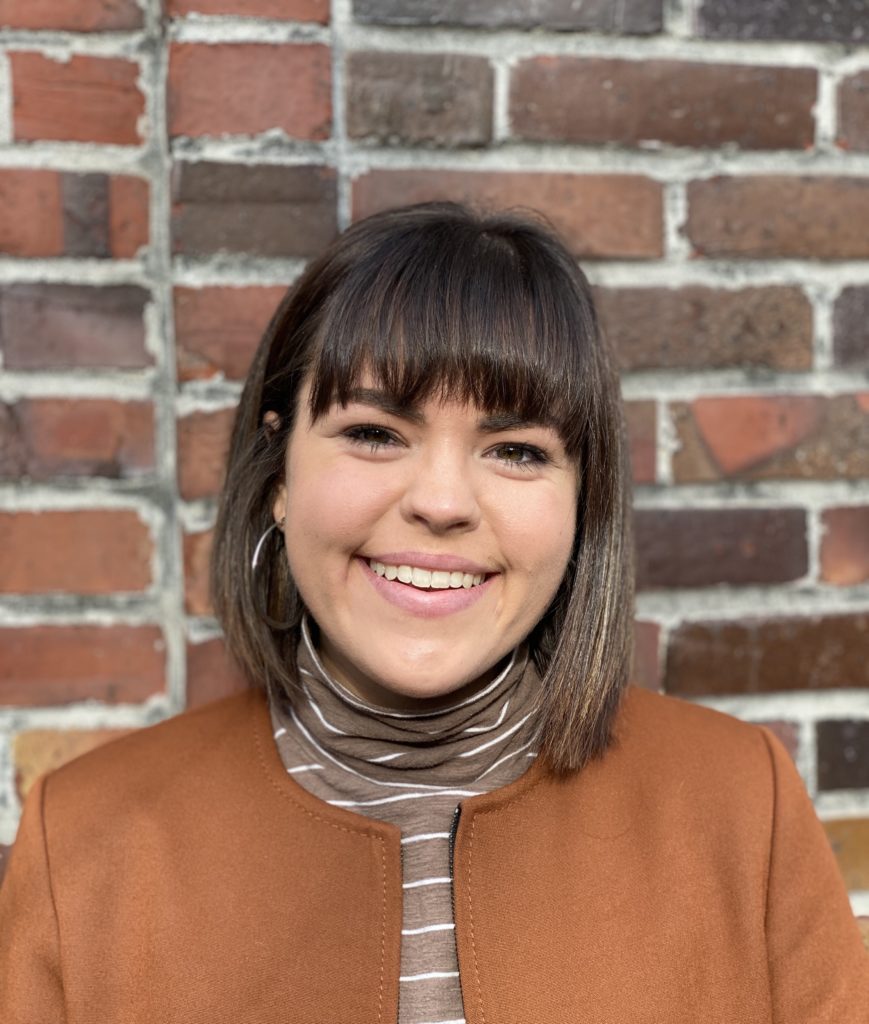
Young Lancaster despised her naturally muscular body and often fantasized about having the “perfect” slender body. Frustrated about not fitting society’s ideal body type after routinely working out and healthy eating, the developing young woman made a pact with herself.
One night after a water polo match, she was feeling particularly insecure about her body and decided that she was going to do everything in her power to achieve her “dream” body. She started eating less, which made her susceptible to developing anorexia nervosa soon afterwards.
The Truth about Anorexia Nervosa
Eating disorders are often sometimes unwittingly glamorized in the media, but the cruel reality lies in the side effects.
When Lancaster struggled with anorexia, she lost a lot of weight in a brief period of time, which led to serious health problems. She experienced hair loss, vitamin deficiency, hormone imbalances, severe acne and lack of energy. She even landed in the emergency room a couple of times.
During Lancaster’s junior year of high school, she moved back to Oregon for her father’s job. He and her stepmom noticed that she was barely eating and decided to get her professional help.
Lancaster went to a nutritionist to please her parents, but she was not ready to take on recovery. She did not listen to the nutritionist’s advice and had a toxic mindset overall with regards to her eating disorder. After a long period of restricting herself, Lancaster started eating regularly again. However, she soon developed binge-eating disorder.
“I started eating again, and, because of that, I could not stop,” she says. “It was the most out-of-body experience I can explain when you just eat and eat and eat. And you are so overly full, and you just keep eating, and you don’t know why. It’s like you don’t even feel like you’re in your own body. I would binge almost every night. It was really bad.”
The Road to Recovery
Brittani Lancaster reveals more in our full interview:
PaperCity: When did you decide for yourself that you wanted to start recovery?
Brittani Lancaster: The summer going into my freshman year of college, my parents took my brother and me to Europe for the first time as a graduation present for both of us. We went to Amsterdam and Croatia. Croatia was the last stop on our trip.
I remember my brother and I decided to go swimming in the Croatian sea, and the entire time I was in Europe, I was restricting myself, like “Oh, you can’t eat the gelato, the pizza, this and that,” and I was so self-conscious the entire time.
Instead, I should have had the mindset “Oh my god, Brittani, you are in Europe for the first time in your life, and you don’t know when you will be able to go back.” I was so self conscious and so in my head that I wasn’t really appreciating the experience that I was being given and the rarity of it.
And, on the last day of the trip, I was sitting on this rock in the Croatian Sea, and it just hit me when I was looking out into this huge body of water where you could not see any more land.
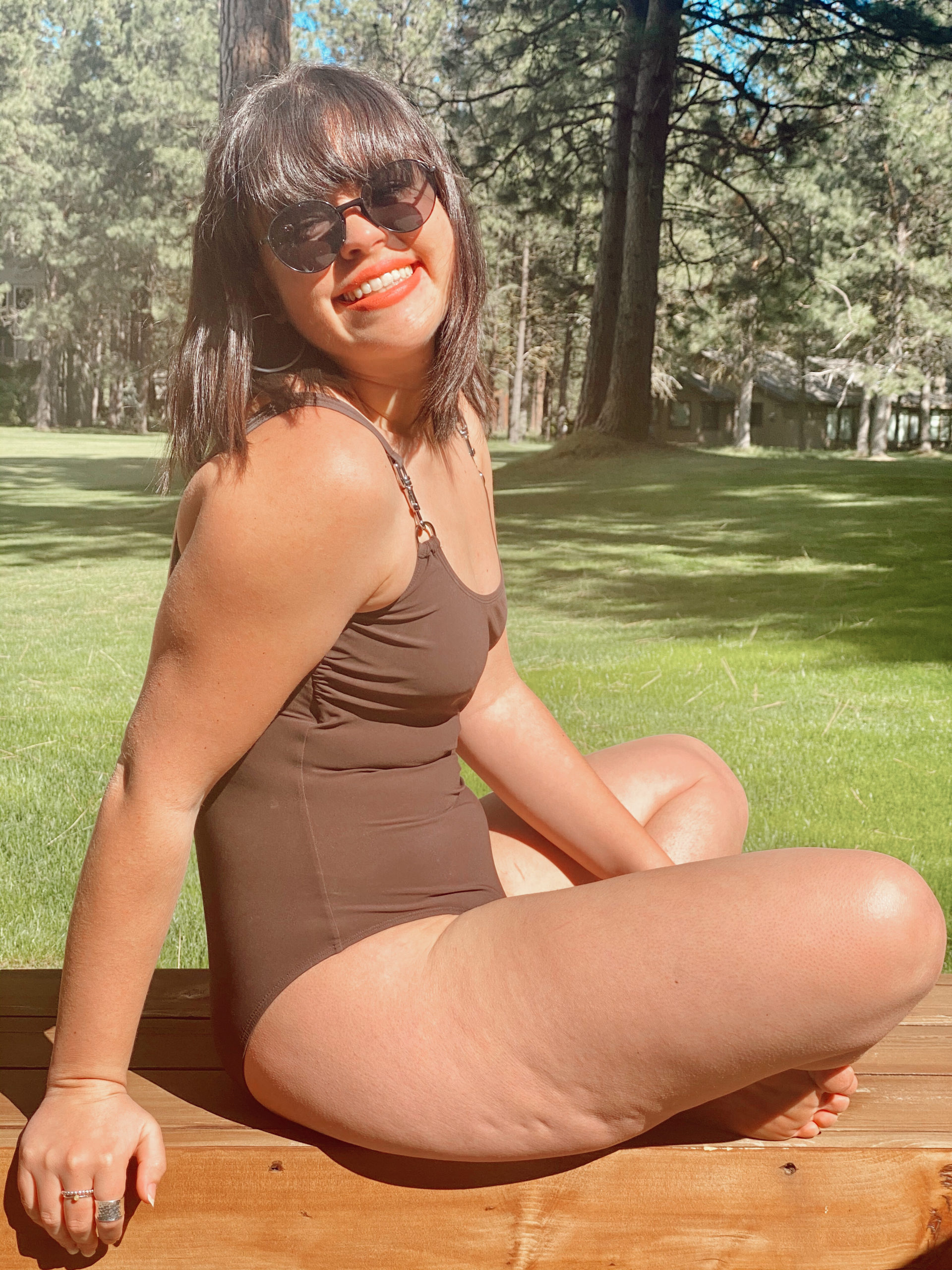
And I was, like, “Oh my god, life is so much bigger than belittling myself every day. Life is so much bigger than that. Your hatred for yourself is so minuscule to the world, so you shouldn’t live with this mindset because there are so many things to experience in this life besides hating your body and putting it through these horrible things.:
At that moment, I promised myself that I was going to do whatever it took to start recovery and that I was going to start treating my body with respect. I was going to obviously give my body grace because you can’t just flip a switch from having an eating disorder to recovery the next day. Since that day, I haven’t looked back.
PC: What did the first steps of recovery look like?
BL: When I got home from the trip, I was leaving for college in two weeks, so it wasn’t like I could see a nutritionist in person. So, I did a lot of personal work on myself, because I did have that previous knowledge when I had first met with a nutritionist.
When I headed off to college, I met with my nutritionist remotely and went to Oregon’s University Health Center. The other thing that I didn’t think would help but actually did was my meal plan at college. It really helped me stop binging because I had a set amount of points for the week,
Having my meal plan really helped me stop bingeing because I knew if I spent all my points on food one night, I was not going to have any more points for the rest of the week. It really helped me kind of intuitively eat and really follow my cravings.
PC: Tell us a little about intuitive eating?
BL: Intuitive eating, to me, is just listening to your hunger signals and eating when you’re hungry and stopping when you’re full. Food is food for me. I don’t classify food as “good” or “bad.” I don’t classify food as a “normal day” or “cheat day.” I don’t have that mindset because I feel like when you do that, there’s a higher chance that you might binge or not have the healthiest relationship with food.
I am not a huge snacker. I am the type of person who enjoys having a good-size meal for my body. I like having breakfast, lunch, dinner, and dessert. I sometimes have a snack here and there. I like to get full, and not have to worry about food for another four hours.
But I think intuitive eating has a lot of different facets to it, and I just try to share my experiences with it on TikTok.
PC: What do you think when your friends comment on your body when they notice weight gain or loss?
BL: One summer, when I came back from visiting my dad in Oregon, I was half the size I was when I had left, and all of my friends were like “What did you do?” and “Oh my God, you look amazing,” and even “This is incredible.” My coaches would even pat me on the back and say, “You are so in shape.”
All these little things people would say to me, but little did they know, I was barely eating. My friends definitely caught on because there would be times where we would all eat lunch together, and I would not eat.
My friends would say, “Where’s your lunch, Britt?” I would lie straight to their faces, and I would just say, “Oh, I ate in the period before this. I was just so hungry, I couldn’t wait until lunch.” Sometimes I would only bring an apple to lunch, and they would say, “Is that all you’re going to eat?” I would just lie to their faces.
So, internally I knew what I was doing was wrong, even though I didn’t want to admit it to anybody. I was ashamed of what I was doing to my body, but I was so sick. I had such a horrible mindset about my body that there was not anything anyone could say to change that.
I remember I went over to my friend’s house one time, and we were baking a funfetti cake. Everyone took their slices, and we sat down to watch a movie. And, my friends were like, “Wait, are you not going to eat any?” And I was like, “Oh no, I’m full.” I had been with my friends the whole day, so they knew I hadn’t eaten anything.
PC: Congratulations on recently hitting 700,000 followers on TikTok. It’s amazing how you’ve been able to inspire so many people around the world about body positivity and ED recovery. How does this make you feel?
BL: Thank you! It’s so crazy to believe, because I really only started sharing my story in February or March of this year. I feel so honored that people feel comfortable enough to follow me and open up to me about their journeys. I’m happy to be helping people.
I definitely think I put a lot of weight on myself just because I am not a professional dietitian, nutritionist, or therapist. However, I do share with my followers my experiences and my advice from what I have been through, in the hope that it will help them.
PC: One of my favorite TikTok series you do is the “What I eat in a day in recovery from two eating disorders.” How did you come up with the ideas to do these videos?
BL: Before I started TikTok, one of my favorite things to watch on YouTube was “What I eat in a day” videos. I always found them fascinating and satisfying. I love food, so I loved seeing what other people ate and getting ideas for new meals.
When I started my TikTok, I was, like, what can I do to help people? So, one day I decided to share what I eat in a day to see how it would do on TikTok. My first “What I eat in a day” wasn’t even what I normally post; I just took videos of each food I ate and put a cheesy song behind it.
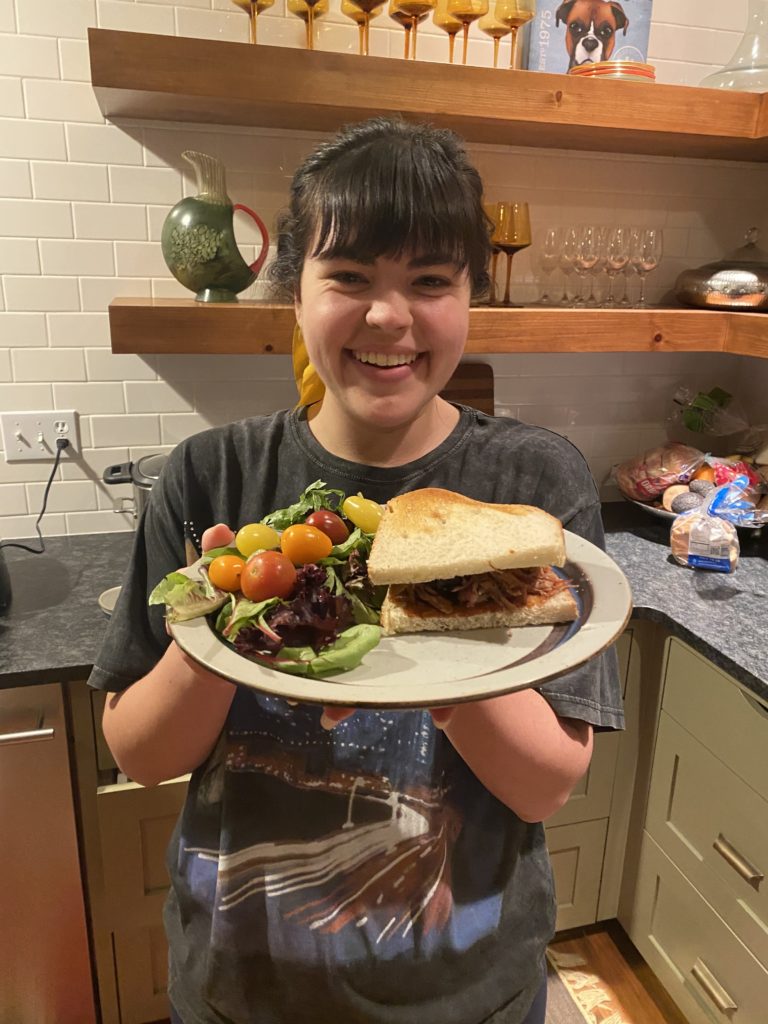
The video did so well. This was at the time where I had 500 followers, and this video got over 200,000 views.
Then one day, I was, like, “Let me see if people like more of a Vlog style of what I eat.” People really liked it, so I just kept on doing it. Since then, I have filmed what I have eaten every single day since March.
PC: You always say “Balance is key” and “Nourish and love your body.” Why do you say this, and what do you mean by it?
BL: I think the phrase “Balance is key” can relate to any part of your life.
I think, obviously, this can relate to food. Last night, my family and I had cilantro chicken, bok choy, mushrooms, spinach salad with carrots, and rice noodles. And, for dessert, I had a cookie and ice cream.
Someone would usually classify this meal as super healthy: lots of greens, veggies. Then my dessert, people might not assume as something healthy. But to me, I think that this is part of a balanced diet.
Nourishing your body is about giving your body the nourishment it needs, but then also keeping in touch with your hunger signals and what you’re craving.
I think that “Balance is key” can belong to exercise. I used to struggle with over-exercising. I saw exercise as a punishment, not something to enjoy. “Balance is key” can be with school, like not throwing yourself entirely into schoolwork, but also having time for a social life.
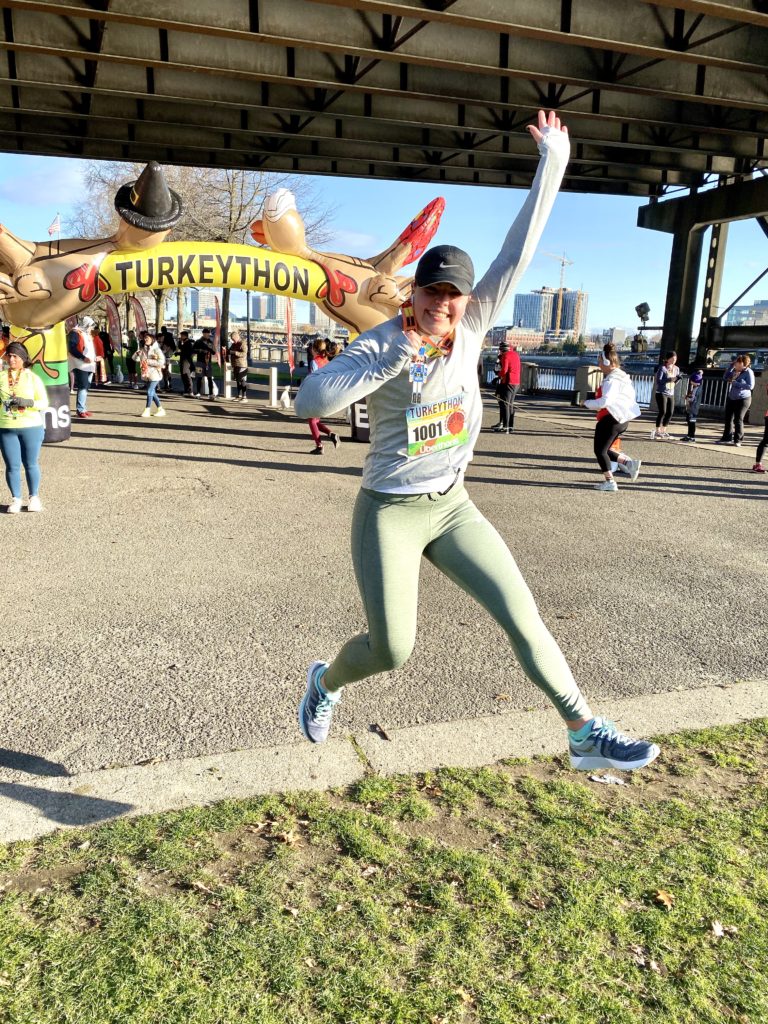
“Balance is key” can be with friends, and making sure you are giving enough time to your friendships.
As for “Nourishing your body,” I really believe that’s different for each person. What each person needs is different. I just share what I feel nourishment is for my body. Obviously, there are going to be people who disagree, but the majority of my followers enjoy seeing it.
PC: One of your TikToks that went viral showed you and your friends dancing to show that everyone can have a bikini body. How did this make you feel?
BL: When I posted this video of my friend Kayleigh and me dancing, it got 8 million views. Kayleigh is family to me. I like to say we’re related through marriage, not through blood, and that’s why we look nothing alike.
I wanted to include Kayleigh in this video because she had the opposite experience as me. Her entire life, she has been naturally very slender. That’s just how she is built as a woman
There was a point in middle school where Kayleigh was so slender that people thought she was anorexic, but she wasn’t at all. That’s a very hard thing for someone to go through. She would eat all the time, but she just had a fast metabolism.
To me, body positivity means that every single body is beautiful, not just plus size. That is not what I am advocating for. I am advocating for every type of body type to be accepted, loved, and to have a place in modeling clothes.
And I made that video with Kayleigh because I think that is a great representation of how every single body is beautiful, and everyone should be able to “throw it back.”
PC: I’ve noticed that TikTok has a great community of influencers who promote body positivity and recovery from EDs, such as Rianna Kish, Mik Zazon, Victoria Garrick, Clara Guillem, and Jana Jaye. What has it been like, getting to know these people? Are you really close to any of them?
BL: They are all so awesome. I feel really blessed. They are the sweetest people ever. I never thought I would make so many Internet friends.
Clara shows a lot of female empowerment. She also talks a lot about mental health. Rianna is close to a year in recovery from an eating disorder, so her channel is amazing for new people starting recovery. Rianna is great on TikTok because she is going through a lot of experiences and working through different things, and I think that can help so many people.
Victoria was a D1 athlete. People think D1 athletes are untouchable. They have so much confidence and don’t have any problems. Victoria is so awesome because she is so vulnerable. She talks about the mental health issues that she has dealt with as a D1 athlete.
We all have different experiences to share, so it’s really special. I would say that I am closest to Victoria. She is so wonderful, beautiful, and we have built a good friendship.
I am also very close to Clara, Jana and Rianna. Everyone is so awesome, supportive, and kind. We do have a really good community, and we really try to uplift each other. We try to comment on each others’ videos and encourage one another.
PC: On your YouTube video “5 tips to start your body positive journey,” you talk about throwing out your scale. I really like how you said, “Putting your worth into a little piece of cloth with a number on it is silly” Tell us a little more about this.
BL: It’s definitely interesting when we think about the fact that whether we consider a day good or bad is whether we are able to fit into different pairs of jeans just because of the numbers on them. Also, I think it’s silly that stepping on a plastic square has the power to determine whether we have a good or bad day.
So, why give that power to an inanimate object?
Same with social media. I think it’s important that your social media feed is personalized to you, so that you have the power to personalize what you see.
It’s important to follow people who make you feel great about yourself, who create a healthy body image for you, and unfollow the people who don’t do that for you. Nobody is forcing you to follow those people, and ultimately it’s up to you.
PC: I know there can be a lot of toxic TikToks about eating disorders and triggers out there. What do you do when you see them?
BL: Well, your algorithm is designed for you. If I ever see any toxic videos on TikTok, I immediately swipe and do not like the video when it comes up on my For You Page. I want my algorithm to know that I do not like those types of videos. I think this has worked for me, because I feel like my For You Page has really positive vibes now.
Sometimes people will tag me in things on TikTok, and if I click on it and know that it is triggering content, I do not click on it. I know someone may have good intentions when tagging me in posts, but I am still a human being and still can get triggered.
PC: What do you do when you’re having a bad day and not feeling the best about your body?
BL: Whenever I have a bad body-image day — like I do, I’m human — I can’t do is just sit there and sulk.
My favorite thing to do on the entire planet is to walk to a coffee shop. So, whenever I am having a bad body-image day, I will call a friend to walk with me to a coffee shop.
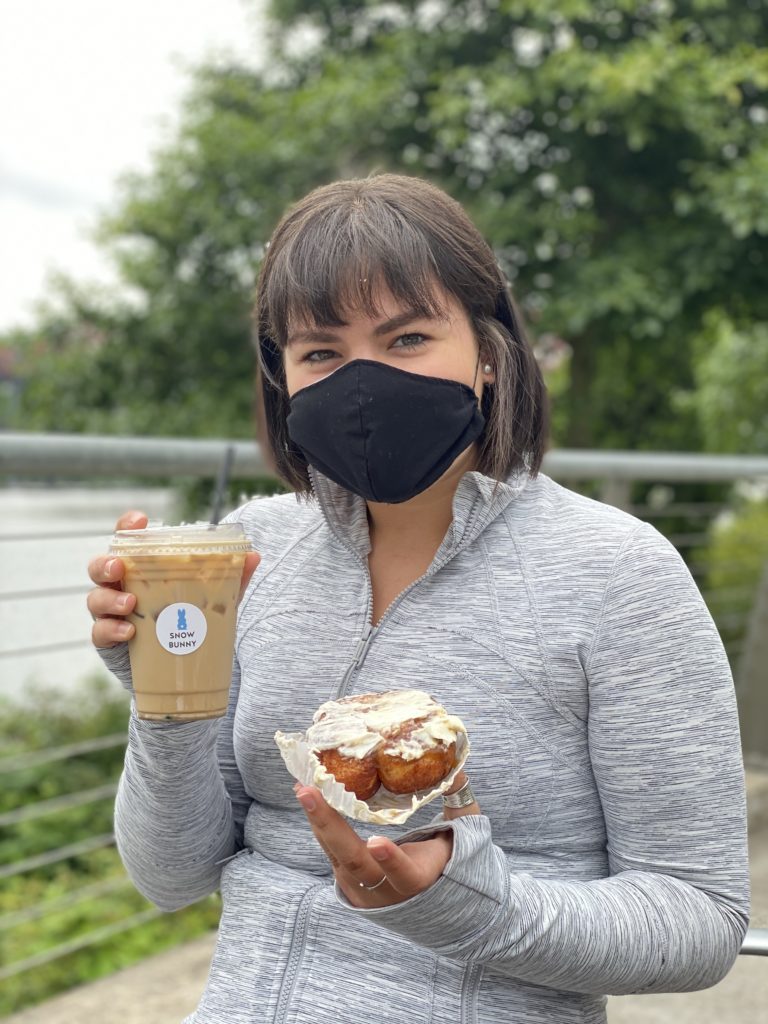
Right now with quarantine, I will get in my car and call my mom over Bluetooth on the speakerphone while I am driving to the coffee shop, and it always helps me feel better.
Getting out helps me so much, because when you go walk to a coffee shop, you could see various things like a puppy that a couple just got, or a cute little family with a newborn baby. And, you just realize that life is so much bigger than the body issues that you’re dealing with today.
Tomorrow, chances are you are going to wake up feeling a lot better, and it was just a one-day thing. If you’re not feeling yourself one day, that is totally okay. You should acknowledge those feelings. But for me, getting out and seeing the world really reminds me that this minuscule feeling that I’m feeling is just today, and that tomorrow will be better.
PC: I saw from your Q&A video that one of your favorite quotes is “We cannot change the cards we were dealt, just how we play the hand” by Randy Pausch.
BL: I love that quote. Every single time I hear it, I get so happy.
I resonate with it because we can’t change the cards we were given. For example, I can’t change that I am not built in a slender body. That’s how I’m naturally built.
But what I can change is how I play the cards, in the sense of how I hold myself. Like the confidence I give myself and the belief I have in myself. In a world that’s filled with comparisons nowadays with social media, that quote is empowering because to me it’s saying don’t try to change yourself. Instead, just try to rock with what you were wonderfully given and embrace that.
PC: Eating disorders are often glamorized by the media and can also be very competitive. What’s your opinion on this?
BL: I think that eating disorders being glamorized is so harmful to so many people.
Not only does everyone have their own different story of how they developed an eating disorder or how they were going to recover from it, but it can be damaging to try to compare one’s hurt or experience to another person.
I just try to eliminate that on my channel as much as possible and just talk about things when I can, and hopefully it resonates with people and things like that.
PC: The term “Freshman 15” is an expression commonly used in the U.S. that refers to an amount of weight gained during a student’s first year at college. What do you think about this term?
BL: I think what a lot of people forget about the Freshman 15 is a lot of the times when we go off to college, our body is transitioning from a teenage girl into a young woman.
So, a lot of that weight fluctuation or whatever it may be has to do with lifestyle changes in colleges, but also just the fact that you’re becoming a woman. And vice-versa for men, or however you identify.
It brings a lot of negative thoughts immediately. I just try to stay clear of the phrase because I think it can be very triggering to some people. I’m glad people are trying to push back on the phrase because it has been in our culture for too long.
PC: What do you think about the editing apps, like Facetune, where you can edit how your body and face look?
BL: I have never used Facetune, and I’m very proud to say that, but I know a lot of people who have.
I think people should be honest about it, just because it’s hard for people on social media when they see someone’s post and think, ‘How do I look like this?’ — but the picture could possibly not be a real depiction of the person.
For me, I have this one filter that I use on a lot of my photos on Instagram, to just make my feed look aesthetically pleasing and as real as possible. But, I always make sure that the filter doesn’t completely change the photo.
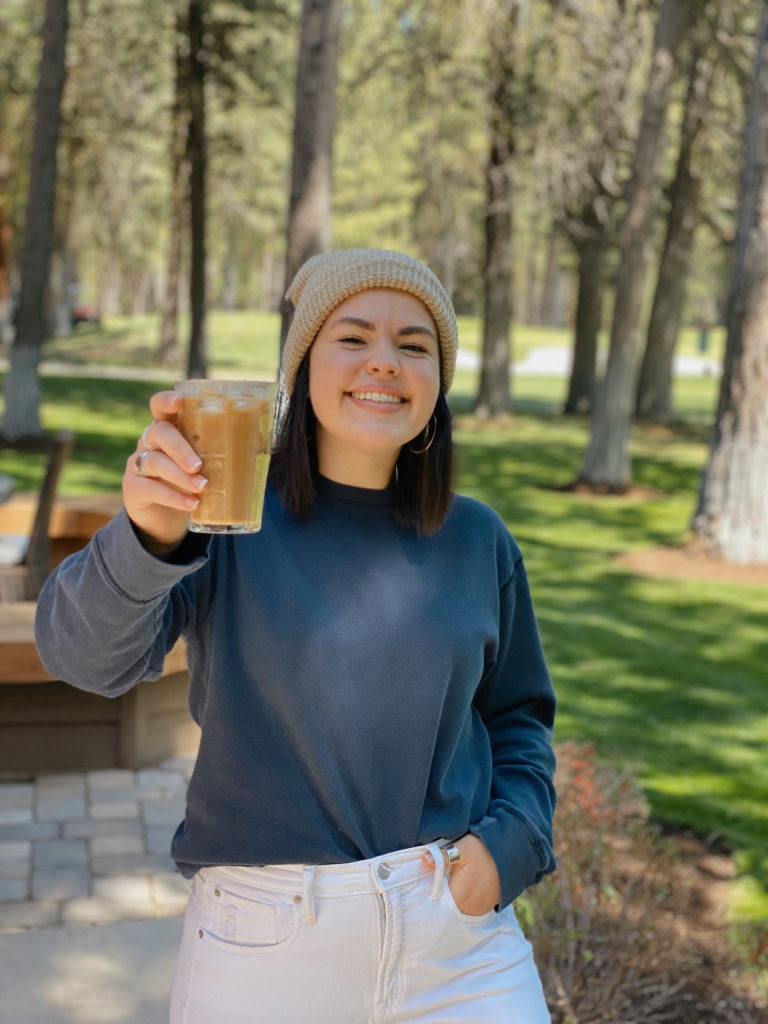
I also have the mindset if people want to wear makeup or glam up every day. If people want to use a filter to make their aesthetic look better, just be honest to yourself and others.
PC: What advice do you have for other young people who are facing eating disorders?
BL: The first step is to really realize that you have a problem and need help. This is completely subjective and just my journey. I was not serious about getting help until I realized, ‘Wow, I have a couple of bad eating disorders, I really need to take this seriously, and get treated for them.’
The thing that shocked me and made me realize that maybe I do need to get some help was when I had my anorexia.
I went to a doctor, and he told me that because of all the health issues I was putting my body through, I could possibly have a hard time getting pregnant later on in life. I have wanted to be a mom my entire life. When my doctor gave me this news, I was, like, “No way. How can these issues affect me having kids later?”
And, that was [part of the reason] why I started to eat again. Obviously, I went through binge-eating disorder, when I started eating again, but at least I was eating.
Eating-disorder recovery is different for everyone. You just have to figure out what your reason is for recovery. Ultimately, seeking professional help helped me get on a good path of recovery, and I think so many people can benefit from it.
PC: Lastly, what you are working on next, regarding body positivity or ED recovery? From one of your YouTube videos, I heard that you might be doing a podcast.
BL: My platform has honestly been super unexpected to me. My platform grew really fast, and I wasn’t expecting this at all.
So, I am actively looking for a 9-5 job in advertising, marketing, and sales, but I think I will have to see where my platform takes me in the next year or so. I am a huge family-oriented person, and I love being so close to them in Portland. But, if a great job offer opened up somewhere else, I would take it. But I am going to continue making TikToks and YouTube channels.
My dream job would be a body-positive blogger or something working for a brand that promotes body positivity, like Aerie or Dove. I think it would be cool to work for a company that has the same values as I do and spreads the same message as I do.
I’ll be starting a podcast eventually. I just got my podcast mic, so I am really excited. I have never gotten this comment before, but I have been receiving comments on my TikTok that my voice is very soothing.
So, I am excited to start making podcasts, because I think I am really going to enjoy it and being able to talk things through with people. I’m also working on some sneaky projects, so it will be good.

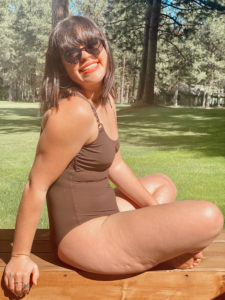
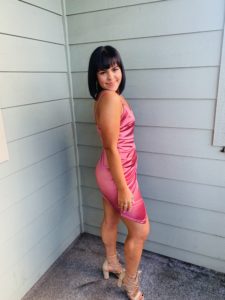
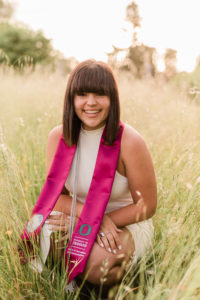
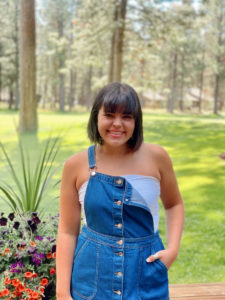
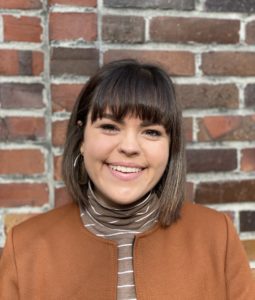
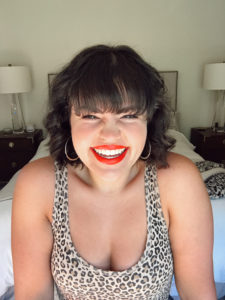
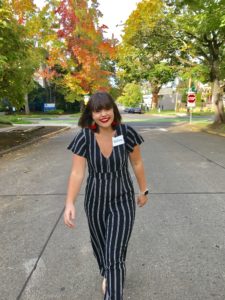
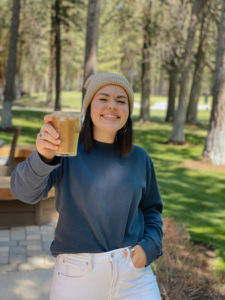
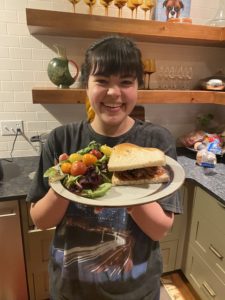
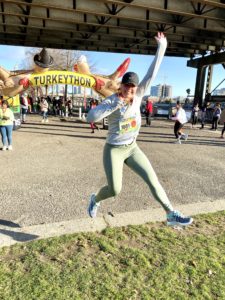
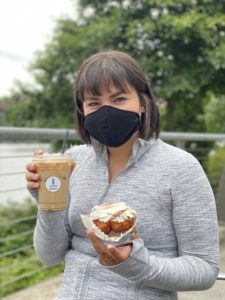
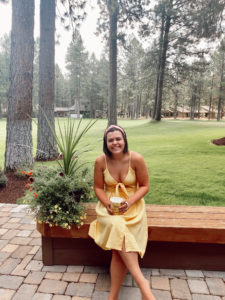
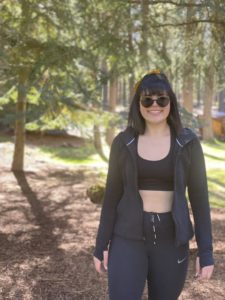

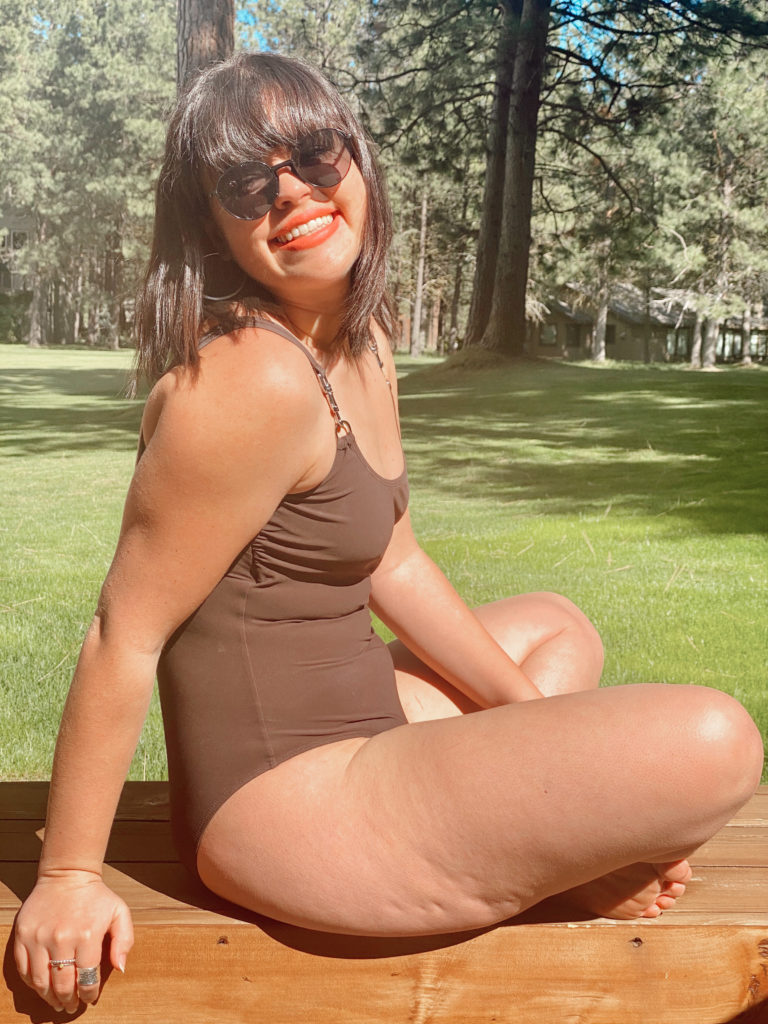
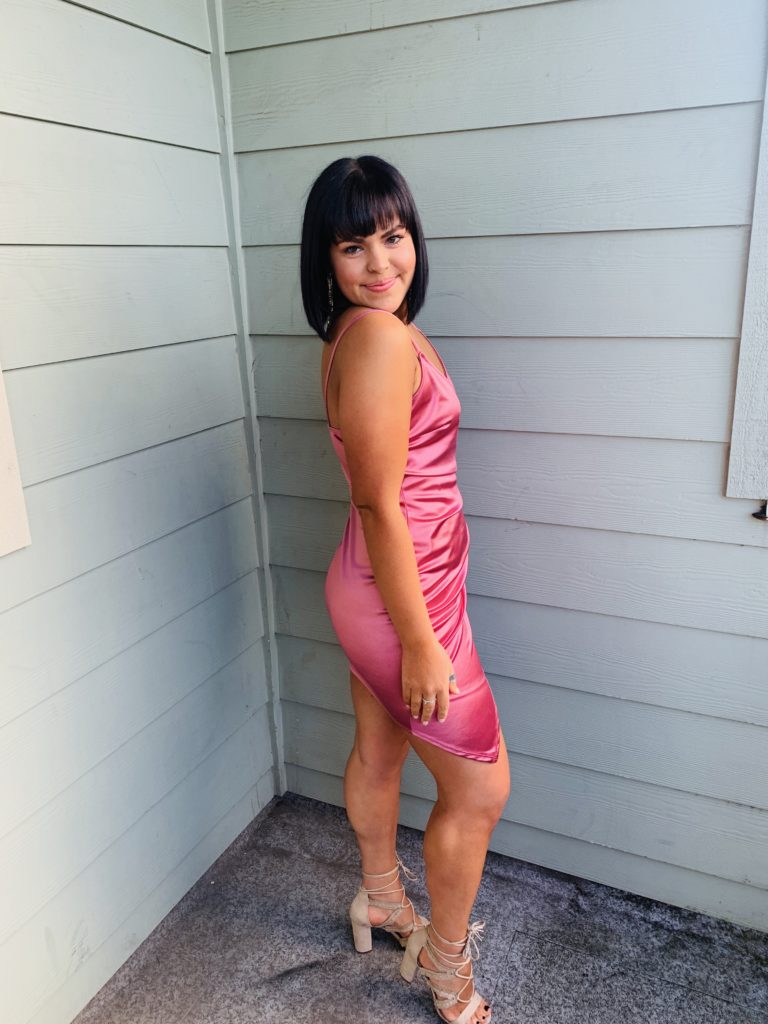
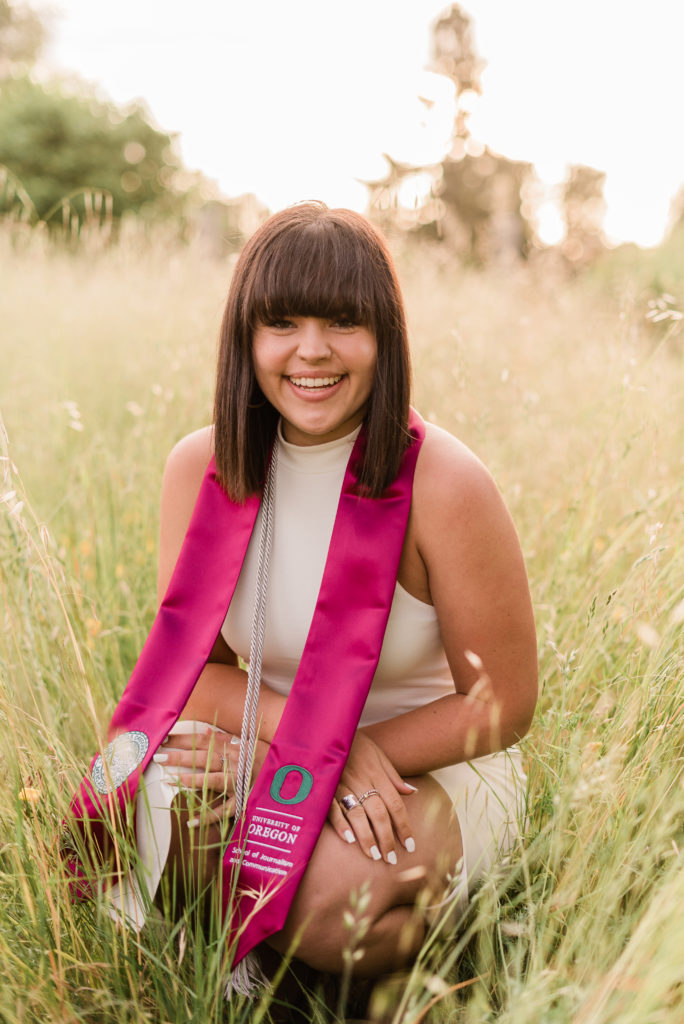
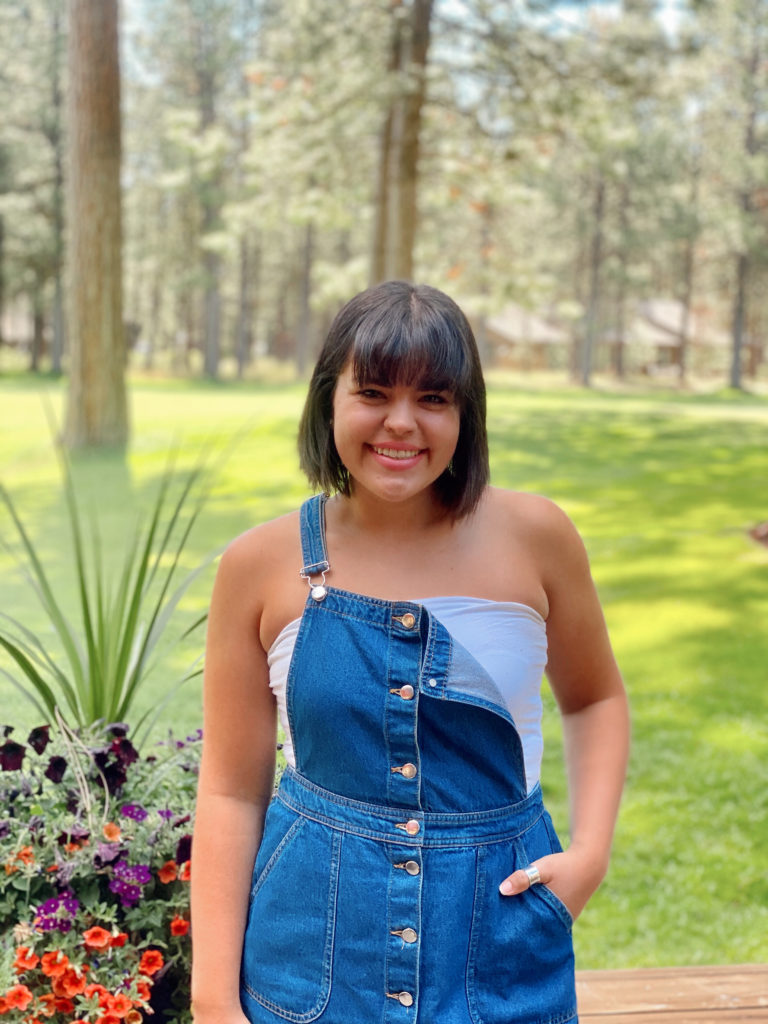
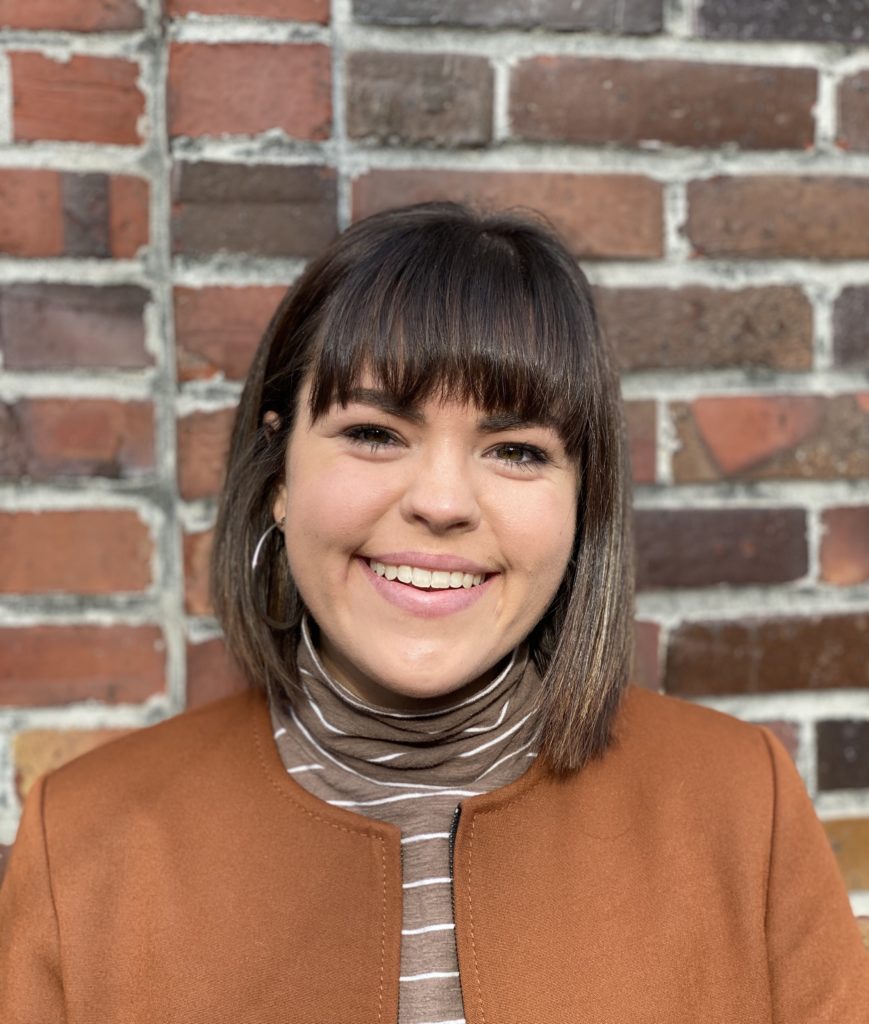
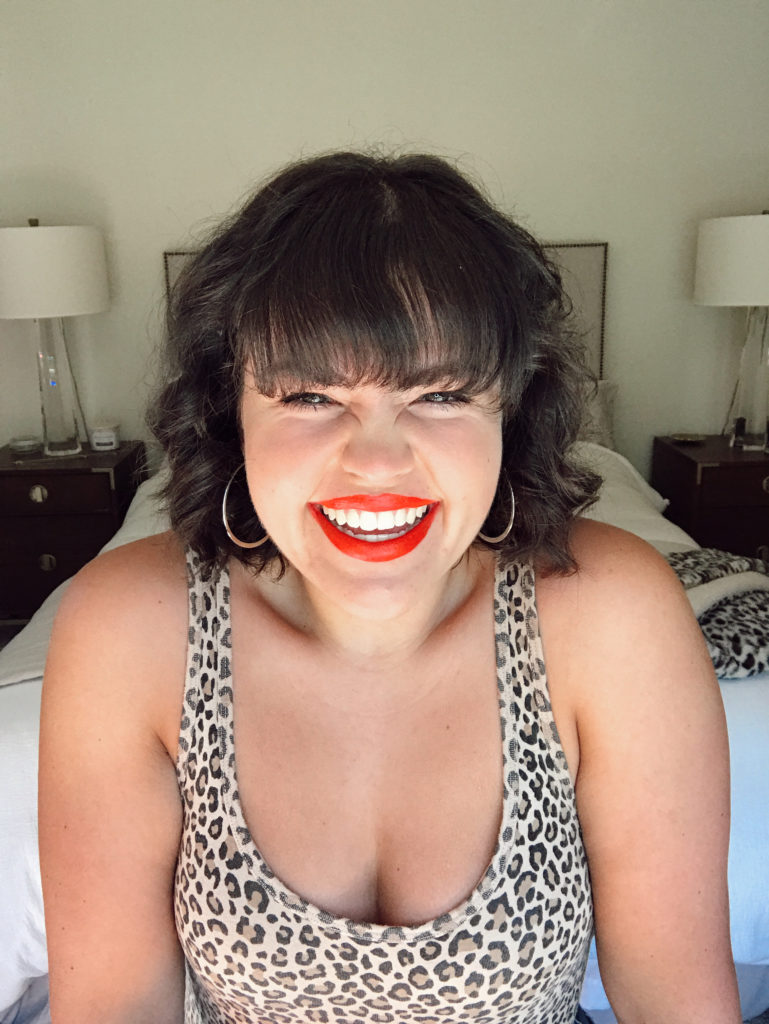
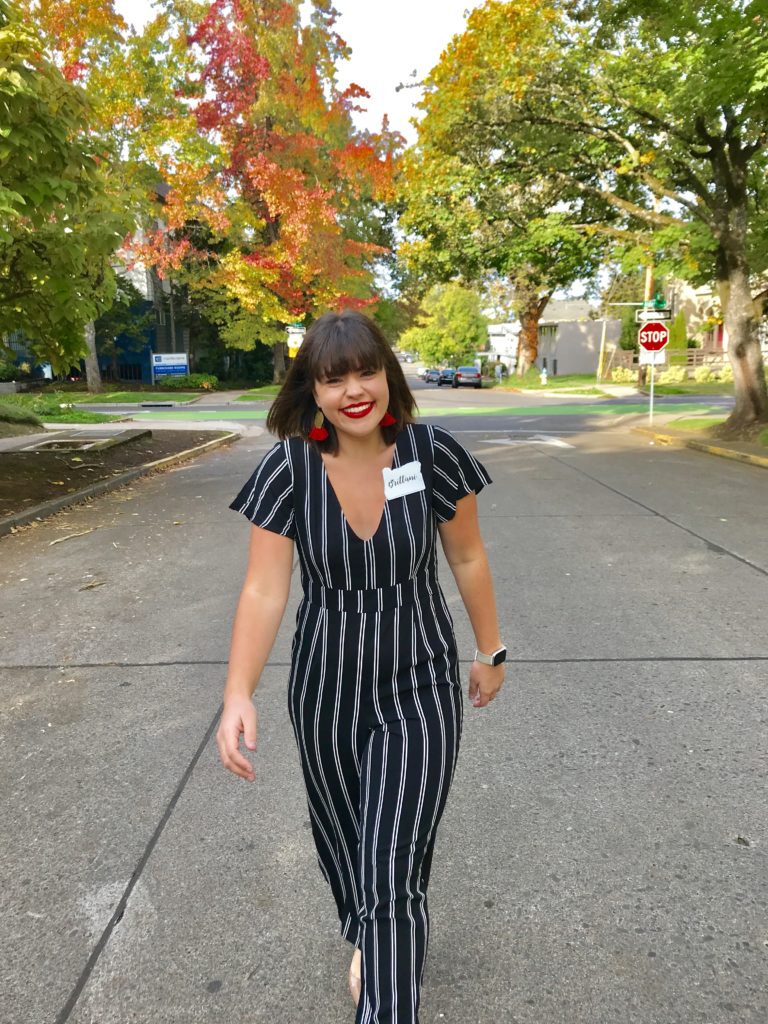
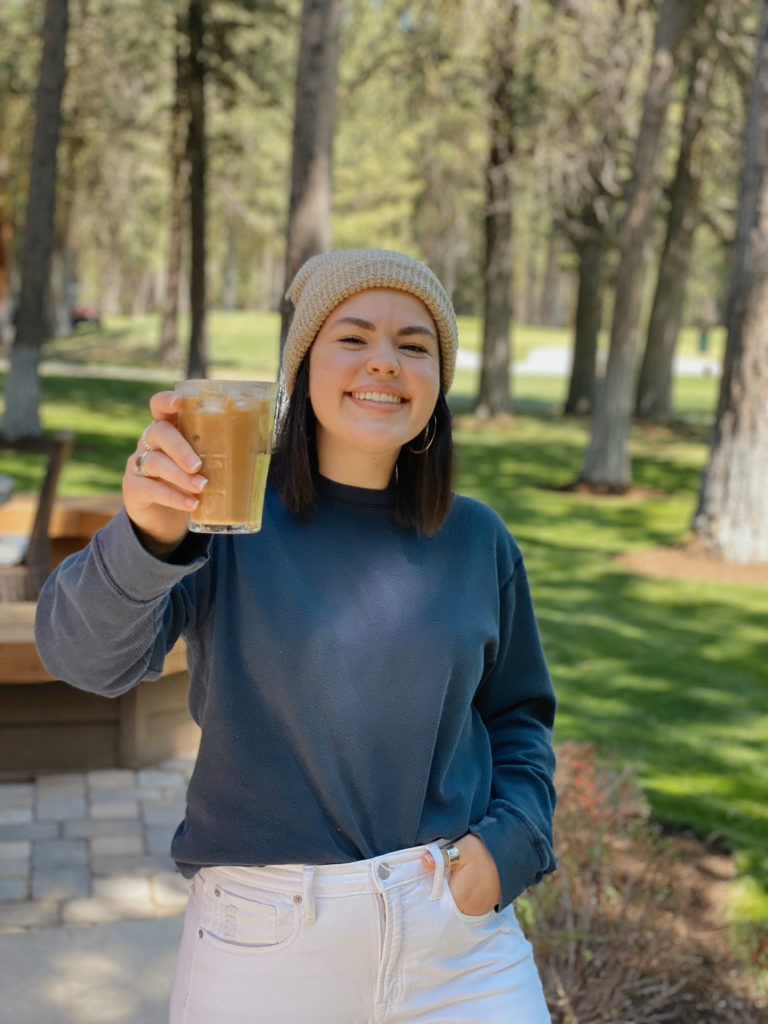

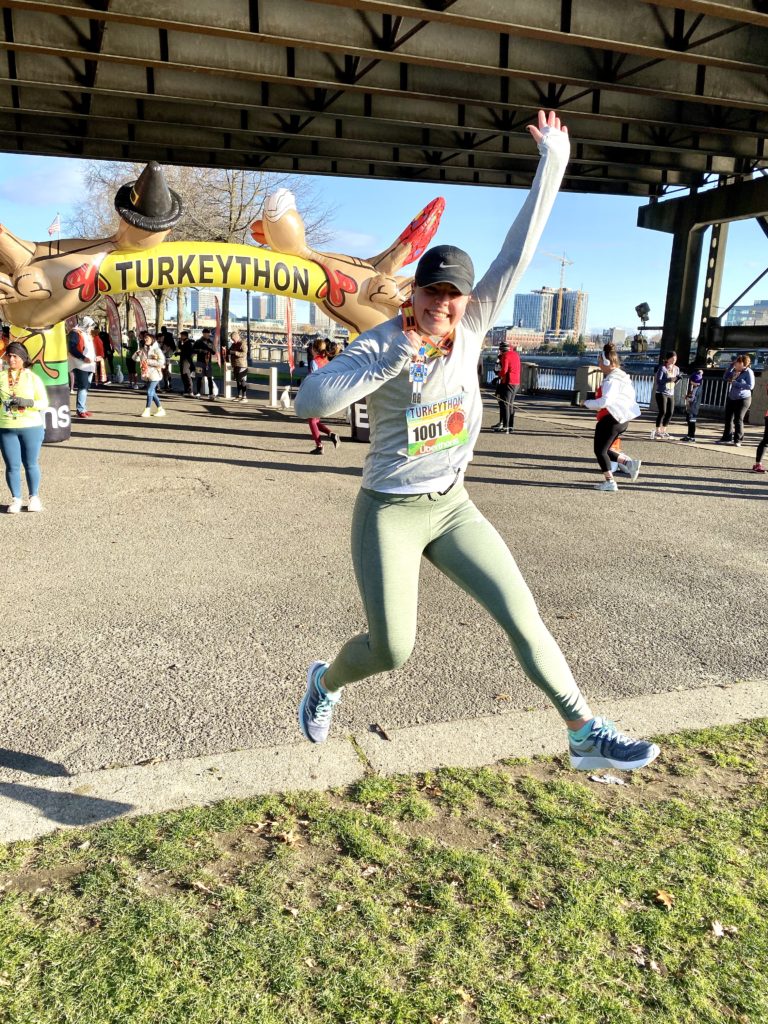
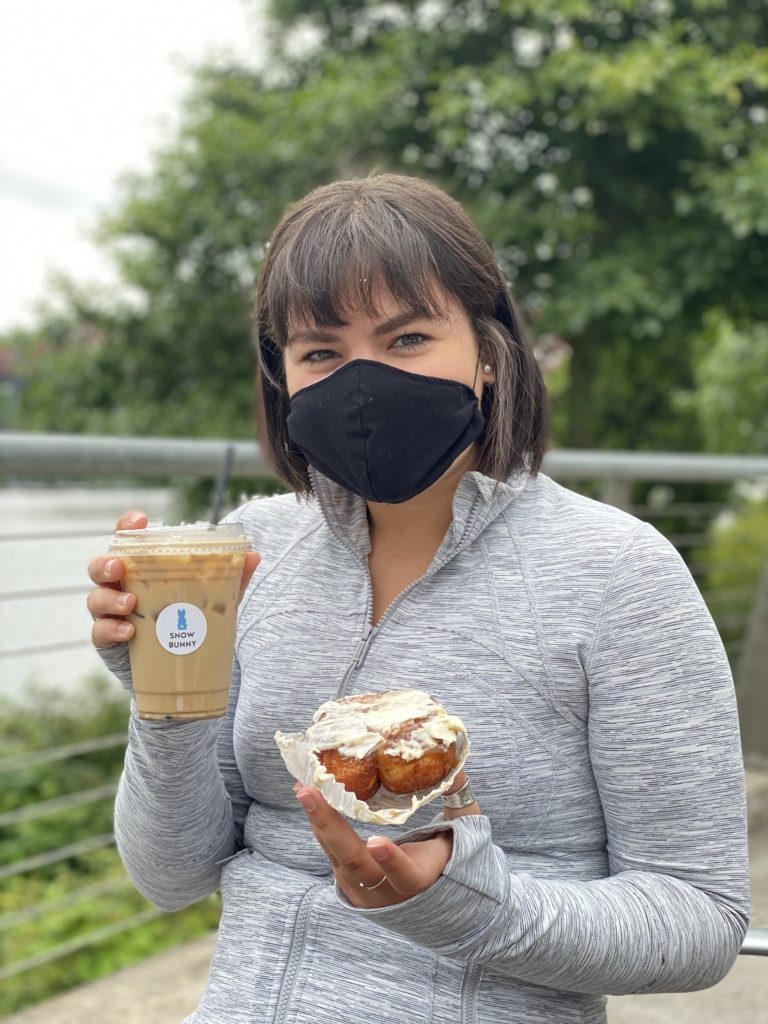
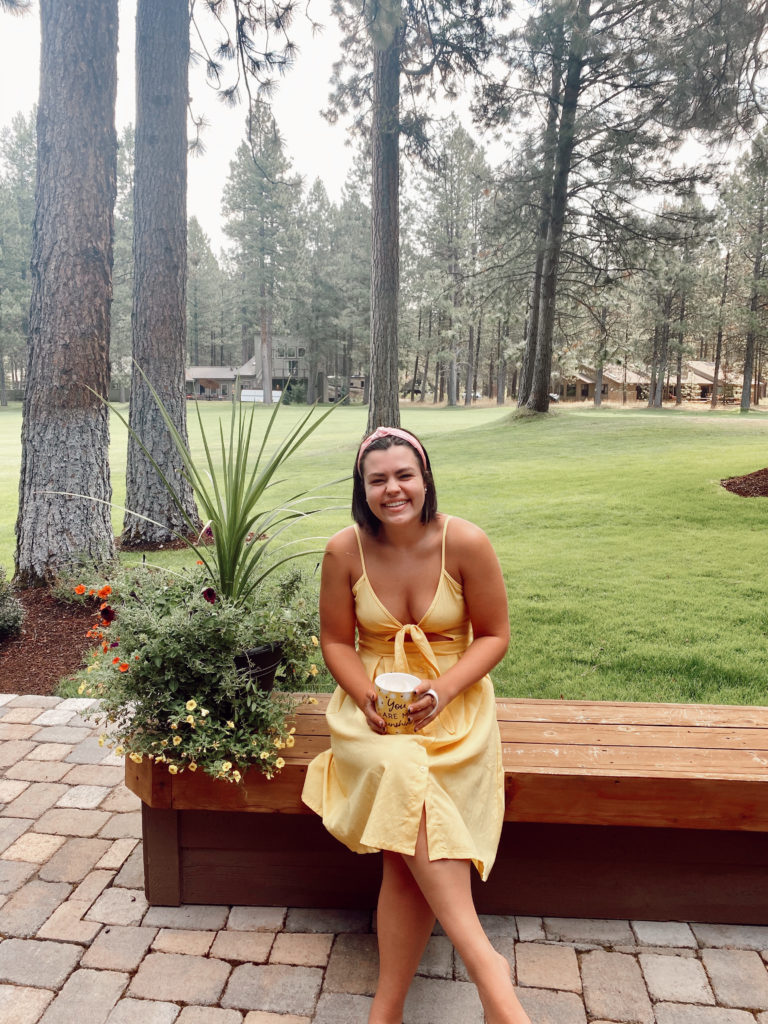


_md.jpg)







